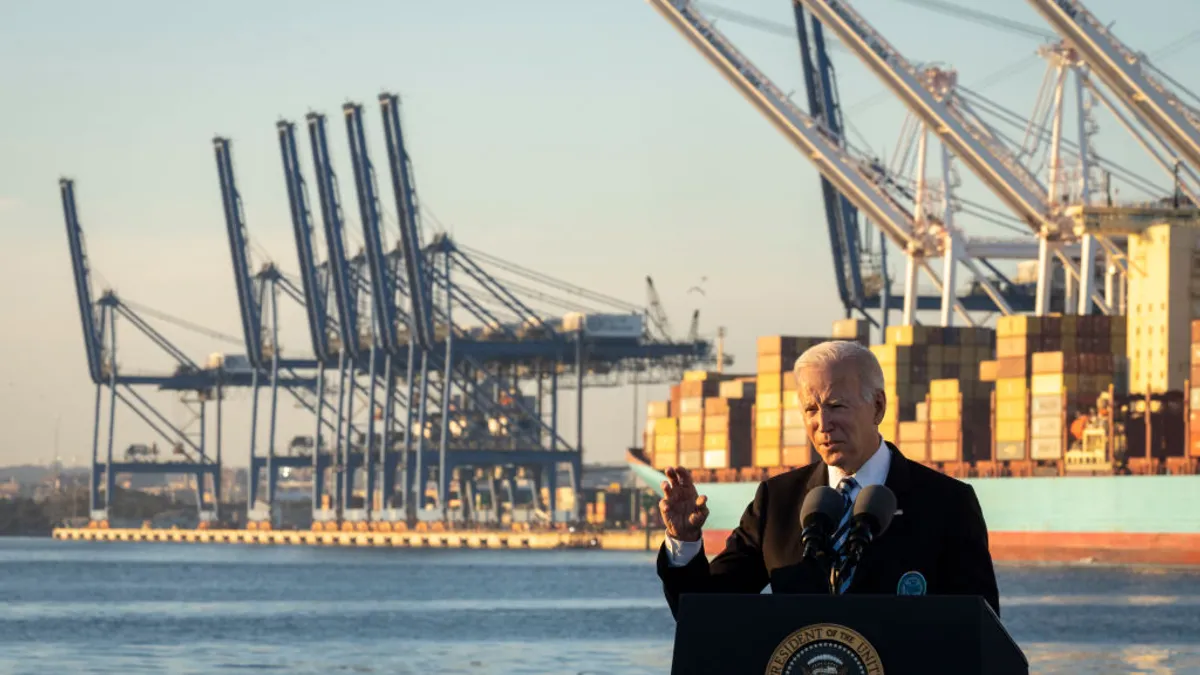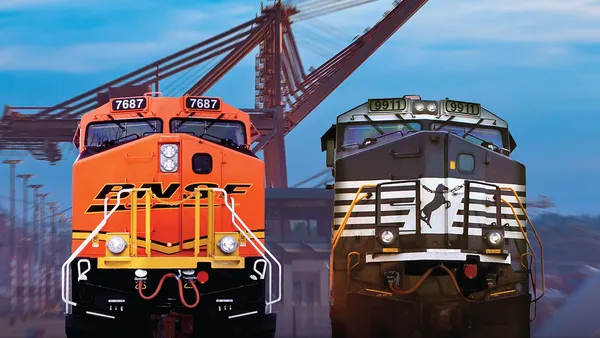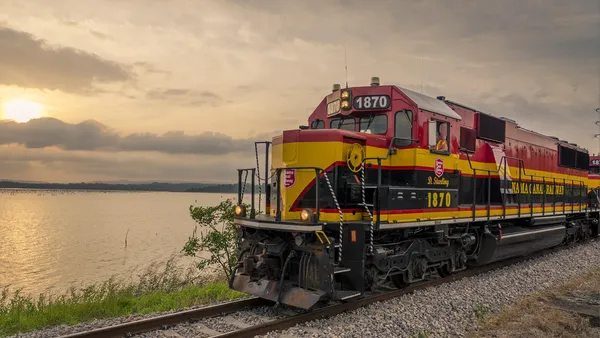Dive Brief:
- The Biden administration on Thursday unveiled a host of measures the government could take to ease bottlenecks and strengthen the supply chains for critical industries.
- The policy recommendations were released in seven separate reports from federal agencies responsible for transportation, agriculture and energy, among other sectors. The actions come a year after President Joe Biden signed an executive order to assess solutions for port congestion, material shortages and other disruptions.
- Departments and agencies plan to host a series of regional summits in the coming months to bring together stakeholders and "discuss opportunities to align regional economic development strategies with the national supply chain strategy," according to a White House statement.
Dive Insight:
Federal regulators are proposing short and long-term actions to add efficiency and resilience to national supply chains after nearly two years of shortages, transportation delays and high costs.
Many of the policy recommendations across agencies call for more data-sharing capabilities and further investments in ports and inland waterways. The Department of Transportation wants to identify ways to increase the number of U.S. shipping companies and U.S.-flagged ships, while the Department of Agriculture is pushing for new dredging projects to accommodate larger ships.
The proposals also focus on encouraging domestic manufacturing and ensuring supply chains are resilient to future disruptions such as climate change.
The reports "are an important milestone, laying a strong foundation upon which we can rebuild America's global leadership in technological development and manufacturing, and create new jobs and new businesses in communities across America," National Economic Council Director Brian Deese said in a statement.
Many of the recommendations mentioned in the reports touch on major issues industry groups have highlighted over the years, including the expansion of truck parking availability. Agencies also responded to a shipper-led push in the rail industry to add more regulatory oversight of carriers.
The U.S. Department of Agriculture, for example, called for new ways to dispute charges, asking to revoke intermodal traffic from regulatory exemptions so shippers could challenge detention and demurrage fees. The agency also expressed its support for reciprocal switching, a controversial proposal to let shippers use alternative rail carriers in certain situations.
"Make no mistake: the recommendation for federal regulators to impose new economic regulations is at direct odds with the stated goals of this report to increase freight fluidity and would also lead to freight diversion away from railroads that would hinder the White House's other stated goal of reducing carbon emissions," Association of American Railroads President and CEO Ian Jefferies said in a statement.















